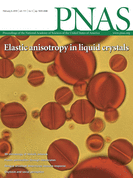 The authors of a paper on dengue virus vaccine design published last year in PNAS are retracting it after discovering that their experimental dengue virus was contaminated.
The authors of a paper on dengue virus vaccine design published last year in PNAS are retracting it after discovering that their experimental dengue virus was contaminated.
Although they are confident that the strategy is sound, the authors write in their commendably detailed retraction notice that the “inadvertent error” rendered the results “uninterpretable.”
Here’s the retraction notice:
We have discovered a significant error that compromises our ability to interpret the in vitro and in vivo data reported in this paper. During recent follow-up studies with the rDENV-3/4 virus, we discovered that the original stocks used to generate the in vitro neutralization data and in vivo primate infection data reported in the manuscript contained contaminating wild-type DENV-4 virus. We have since determined this low-level contamination was sufficient to confound the chimeric DENV-3/4 results, rendering them uninterpretable. We emphasize that the escape mutant and recombinant protein data reported in the paper are in no way compromised by this contamination and stand on their own. Specifically, mapping of the critical 5J7 antibody epitope residues, shown in Fig. 1, did not utilize any recombinant chimeric DENV. The viral antibody escape mutants were derived from wild-type infectious clones and were sequence verified. The loss of antibody binding studies were conducted by Integral Molecular and used a recombinant protein expression system independent of the chimeric DENV. We deeply apologize for this inadvertent error. Accordingly, we have unanimously decided to retract the manuscript at this time. Given the large number of related constructs that we have subsequently generated in the laboratory, the strategy is sound; however, we cannot interpret the data and results reported in the manuscript.
The paper, “Dengue virus envelope protein domain I/II hinge determines long-lived serotype-specific dengue immunity,” has been cited 13 times, according to Thomson Scientific’s Web of Knowledge.
The study had already been the subject of a correction because the authors had neglected to add a funder to the acknowledgements.
The corresponding authors, Aravinda M. de Silva and Ralph S. Baric at the University of North Carolina, haven’t replied to our request for additional comments and a press contact at PNAS said the journal has nothing to add.
Hat tip: Rolf Degen